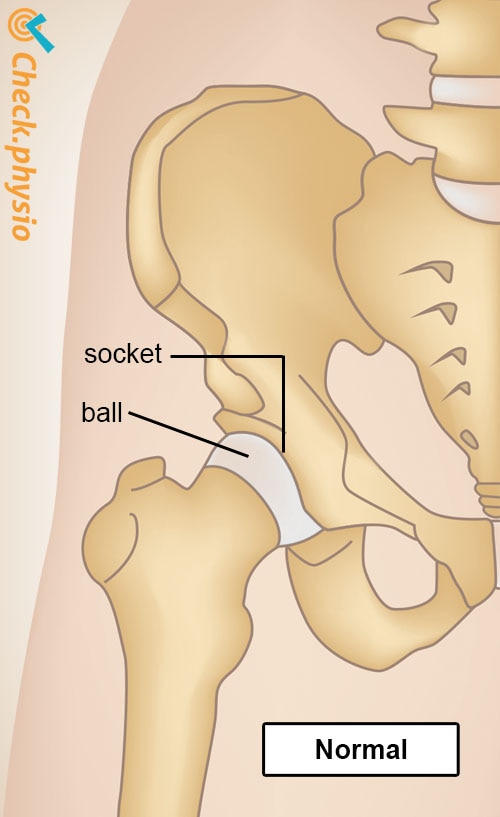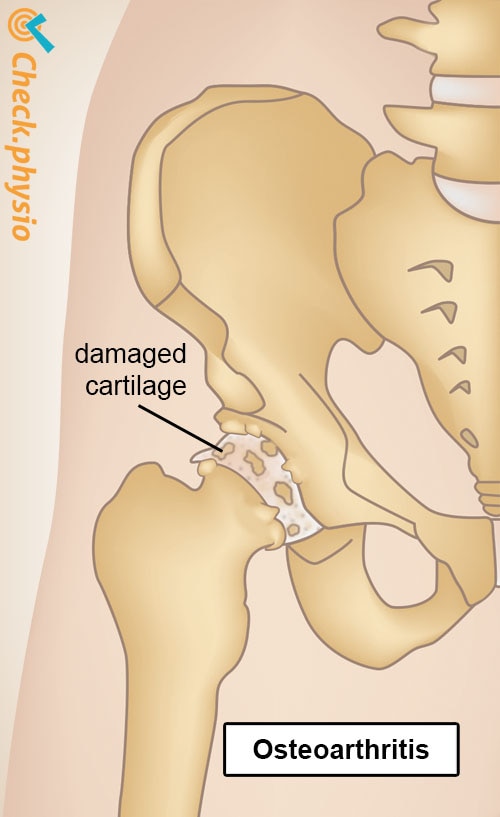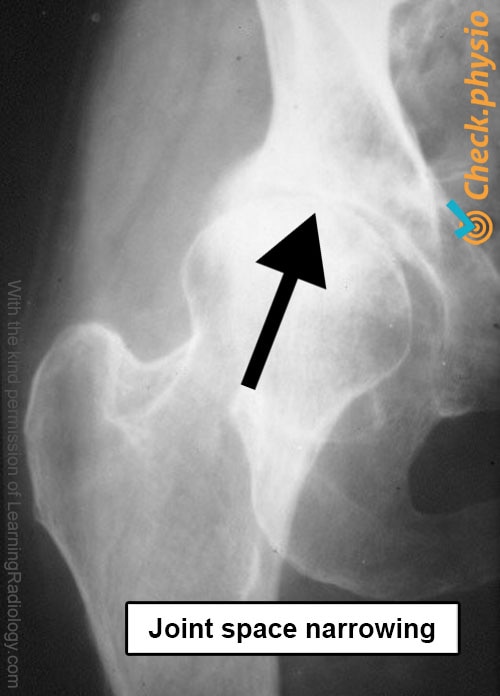Osteoarthritis of the hip
Coxosteoarthritis
Osteoarthritis of the hip is a very common condition. The cartilage in the hip joint becomes damaged, meaning that the joint no longer slides easily and the hip starts to feel stiff. The symptoms are usually related to the aging process.

This is commonly referred to as wear-and-tear of the hip. Specialists prefer to use the term coxosteoarthritis.
Description of condition
The hip joint consists of a ball and socket. Both are covered by a thin layer of cartilage. This acts as a shock absorber and ensures easy sliding of individual bone components within the joint. Osteoarthritis is associated with deteriorating quality of the cartilage. This results in the joint moving less smoothly and shocks being absorbed less effectively. Wear-and-tear of the cartilage can result in chronic hip symptoms.
Loss of cartilage means that the bone structures in the joint increasingly come into contact with each other. This is painful and the joint becomes less mobile as a result. In response to this process, the body may start to form osteophytes. This means abnormal bony growths occur along the edges of the joint, making the joint wider. By making the joint wider, the pressure is distributed over a greater surface area. This is the body's way of trying to limit the effects of osteoarthritis.
Cause and history
Patients are often over 60. The symptoms develop gradually and in most cases they have been present for several months. In the end we all develop osteoarthritis, it is a natural process that is part of aging.
Signs & symptoms
- Stiffness of the hip joint.
- Morning stiffness; the patient needs to get moving in the morning before the worst stiffness disappears.
- The mobility of the hip's movement is limited in all directions.
- Maximum passive movements result in a hard resistance (bone-on-bone contact).
- Pressure on the front of the hip joint can be painful.
- Loss of strength when lifting the leg sideways (abduction).
Trendelenburg's sign is often observed as a result of the loss of strength. The patient has a waddling gait, with the trunk leaning over the affected side.
Diagnosis
The physical examination, combined with the patient's story is often sufficient to make a diagnosis. X-rays are only taken if there is any doubt about the diagnosis or if surgery is being considered. When osteoarthritis is present, joint space narrowing will be visible on the X-ray. In addition, other effects of osteoarthritis may be visible, such as osteophyte formation.
Treatment
Damage to cartilage is irreversible. The treatment is aimed primarily at reducing the symptoms. It is particularly important to keep moving, without overloading the hip. Physiotherapy and manual therapy have both been proven to be effective in relieving the pain associated with hip osteoarthritis.
Once both forms of treatment fail to result in improvement, a surgical intervention may be considered. A hip replacement (hip prosthesis) can be performed for severe, increasing symptoms. During this procedure, the ball and/or the socket will be replaced, depending on the condition of each. If the entire hip joint is replaced by a prosthesis, this is referred to as a "total hip replacement".
Exercises
To prevent deterioration of the hip due to osteoarthritis, it would be sensible to keep moving and do daily exercises. This keeps the cartilage healthy and the hips fit.
You can check your symptoms using the online physiotherapy check or make an appointment with a physiotherapy practice in your locality.


References
Nugteren, K. van & Winkel, D. (2009). Onderzoek en behandeling van artrose en artritis. Houten: Bohn Stafleu van Loghum.
Nugteren, K. van & Winkel, D. (2007). Onderzoek en behandeling van de heup. Houten: Bohn Stafleu van Loghum.




